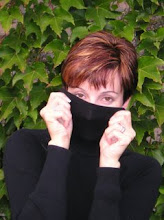December 23
The Holy Boy
music by John Ireland, poem by Herbert S. Brown
performed by The Cambridge Singers
and also by pianist Eric Parkin
Lowly, laid in a manger,
With oxen brooding nigh,
The Heav’nly Babe is lying
His Maiden Mother by.
Lo! the wayfaring sages,
Who journey’d far through the wild,
Now worship, silent, adoring,
The Boy, The Heav’nly Child –
The Heav’nly Child!
Leave your work and your play-time,
And kneel in homage and prayer.
The Prince of Love is smiling
Asleep in His cradle there!
Bend your heart to the wonder,
The Birth, the Mystery mild,
And worship, silent, adoring,
The Boy, The Heav’nly Child –
The Heav’nly Child!
Dim the light of the lantern,
And bare the mean abode,
Yet gold and myrrh and incense,
Proclaim the Son of God.
Lowly, laid in a manger,
By Virgin undefiled,
Come worship, silent, adoring,
The boy, The Heav’nly Child –
The Heav’nly Child!
music by John Ireland, poem by Herbert S. Brown
performed by The Cambridge Singers
and also by pianist Eric Parkin
Lowly, laid in a manger,
With oxen brooding nigh,
The Heav’nly Babe is lying
His Maiden Mother by.
Lo! the wayfaring sages,
Who journey’d far through the wild,
Now worship, silent, adoring,
The Boy, The Heav’nly Child –
The Heav’nly Child!
Leave your work and your play-time,
And kneel in homage and prayer.
The Prince of Love is smiling
Asleep in His cradle there!
Bend your heart to the wonder,
The Birth, the Mystery mild,
And worship, silent, adoring,
The Boy, The Heav’nly Child –
The Heav’nly Child!
Dim the light of the lantern,
And bare the mean abode,
Yet gold and myrrh and incense,
Proclaim the Son of God.
Lowly, laid in a manger,
By Virgin undefiled,
Come worship, silent, adoring,
The boy, The Heav’nly Child –
The Heav’nly Child!
John Ireland was born in 1879, to parents who were cultured and "literary". Indeed, they were friends with many influential writers of the day, including Ralph Waldo Emerson. Sadly, Ireland was orphaned at the age of 14, when both of his parents died within just a few months of one another. Luckily, he had found music by this point in his early life, and was able to continue his studies at the newly-established Royal College of Music in London. He concentrated on piano and organ, with a focus on composition, under the tutelage of Sir Charles Stanford, who taught many of the English composers who emerged at the end of the 19th century: Ralph Vaughan Williams, Gustav Holst, Herbert Howells, George Butterworth, and many others.
Ireland seems to have been extremely hard on himself during his early years of composition: he destroyed almost every work that he wrote during his youth, and very little remains of his "juvenilia". However, near the end of The Great War, he became an overnight sensation when his Violin Sonata No.2 in A minor was extremely well received by audiences and critics. From then until his death in 1962, he worked as a composer and teacher at the Royal College of Music, where his students included Benjamin Britten and E. J. Moeran. One of my great-uncles also had the privilege of Ireland's teaching, and remained a devotee of his music and influence for the rest of his long life. John Ireland also served as organist and choirmaster at St. Luke's Church, Chelsea, in London.
Ireland's work has often been described as "musical impressionism". He tended away from writing heavier works for full orchestras-- he never wrote a symphony-- and preferred writing chamber music, and works for voice and piano. He was very strongly influenced by British poetry, and set the writings of A. E. Housman, Thomas Hardy, Christina Rossetti, John Masefield and Rupert Brooke to music. He also dearly loved the English countryside, and eventually settled in a converted windmill in Sussex, where he died on 12th June 1962.
The Holy Boy is perhaps one of John Ireland's best-known works, and it has been arranged for voice, choir, piano, and string orchestra. I also have a great fondness for his hymn, My Song is Love Unknown, composed in 1918, for lyrics written in 1664 by Samuel Crossman.
My very favourite piece, however, is The Towing Path, which was the first of John Ireland's music that I ever heard played. I was about nine years old when my very elderly great-uncle (who had been Ireland's pupil at the Royal College of Music) came to Canada with my grandmother for a visit. He brought a suitcase-full of sheet music with him, as he had heard that my mother was a gifted pianist. He must have been impressed by my mother's skill and interest in music, as he gave her copies of many of the pieces that she had admired before he left.
Ireland seems to have been extremely hard on himself during his early years of composition: he destroyed almost every work that he wrote during his youth, and very little remains of his "juvenilia". However, near the end of The Great War, he became an overnight sensation when his Violin Sonata No.2 in A minor was extremely well received by audiences and critics. From then until his death in 1962, he worked as a composer and teacher at the Royal College of Music, where his students included Benjamin Britten and E. J. Moeran. One of my great-uncles also had the privilege of Ireland's teaching, and remained a devotee of his music and influence for the rest of his long life. John Ireland also served as organist and choirmaster at St. Luke's Church, Chelsea, in London.
Ireland's work has often been described as "musical impressionism". He tended away from writing heavier works for full orchestras-- he never wrote a symphony-- and preferred writing chamber music, and works for voice and piano. He was very strongly influenced by British poetry, and set the writings of A. E. Housman, Thomas Hardy, Christina Rossetti, John Masefield and Rupert Brooke to music. He also dearly loved the English countryside, and eventually settled in a converted windmill in Sussex, where he died on 12th June 1962.
The Holy Boy is perhaps one of John Ireland's best-known works, and it has been arranged for voice, choir, piano, and string orchestra. I also have a great fondness for his hymn, My Song is Love Unknown, composed in 1918, for lyrics written in 1664 by Samuel Crossman.
My very favourite piece, however, is The Towing Path, which was the first of John Ireland's music that I ever heard played. I was about nine years old when my very elderly great-uncle (who had been Ireland's pupil at the Royal College of Music) came to Canada with my grandmother for a visit. He brought a suitcase-full of sheet music with him, as he had heard that my mother was a gifted pianist. He must have been impressed by my mother's skill and interest in music, as he gave her copies of many of the pieces that she had admired before he left.

Whenever I hear Ireland's music, I am reminded of my great-uncle: a tall, foreboding looking gentleman, who was, in fact, soft-spoken, and possessed the gentle soul of a gifted artist.





























No comments:
Post a Comment